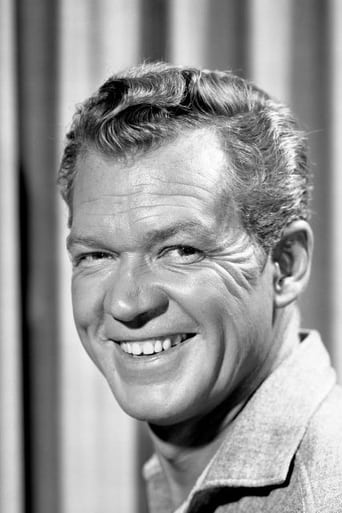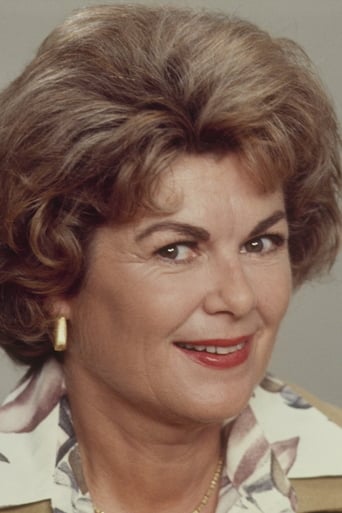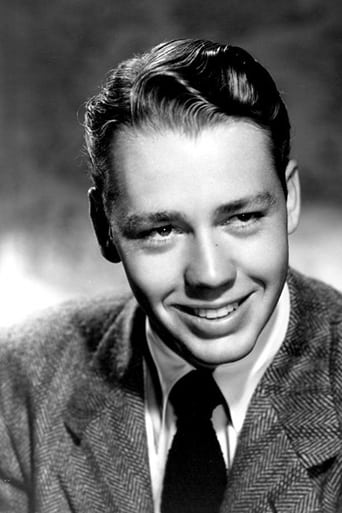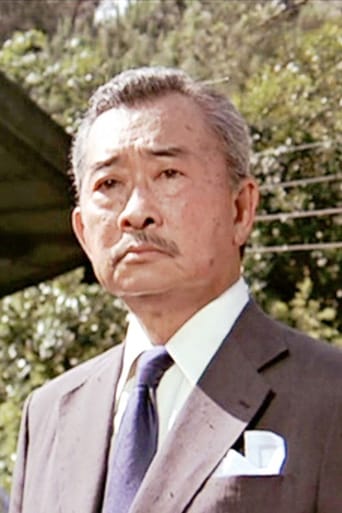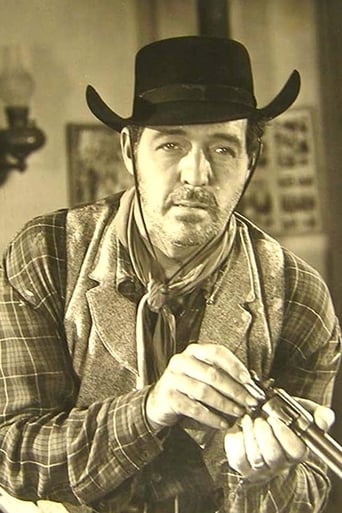Kattiera Nana
I think this is a new genre that they're all sort of working their way through it and haven't got all the kinks worked out yet but it's a genre that works for me.
Maidgethma
Wonderfully offbeat film!
Protraph
Lack of good storyline.
Borgarkeri
A bit overrated, but still an amazing film
kidboots
Bill Williams was a reliable actor who specialised in "nice guy" roles. His main claim to fame was his marriage to Barbara Hale (TV's Della Street) and after their marriage they were paired in films like "A Likely Story" and "The Clay Pigeon". "The Clay Pigeon" was a better than average programmer with class A credentials - director Richard Fleisher (he later directed "Compulsion" and "The Boston Strangler") and screenwriter Carl Foreman ("Champion" and "The Men").Seaman James Fletcher (Bill Williams) awakes in the United States Naval Hospital from a coma, to find hostility among the staff - one of the other patients even tries to strangle him. He can't understand why then overhears he is to be charged with treason. He knows, deep down, he could not have been guilty of such a crime and escapes to try to find out the truth. His memory starts to return and he looks up an old friend - Mark Gregory. He is made welcome by Martha Gregory (Barbara Hale) but he happens to see an article in the papers - police are searching for him in connection with Mark Gregory's death!!! After a tussle with Martha - she had been secretly trying to ring the police, he gets in contact with Ted Niles (Richard Quine) - the three of them had called "The Three Musketeers" during the War, and Ted grudgingly agrees to help him. Williams plays James in a very aggressive way - I can understand Martha's reluctance to believe him at first.Something doesn't add up and it doesn't take long to realise who the real villain is - James and Martha are deliberately run off the road when they are on their way to Ted's. James is also experiencing black- outs and flashbacks. He was tortured and flogged by a Japanese prison guard, nicknamed "The Weasel" (Richard Loo, who was kept pretty busy during the 1940s, playing assorted POW guards and heavies). They finally get to L.A. but while at a Chinese restaurant James sees "The Weasel" and also encounters the same two goons who tried to run them off the road. They still count Ted as their friend and he tells them he will put a private detective on "The Weasel's" trail - or does he!!!This is an excellent little film and for 63 minutes the pace doesn't let up. Beautiful Barbara Hale had quite a dramatic role that required more of her than being mere set decoration. Richard Quine had been a child actor but had turned his talents to directing as well as acting. He was also married to the tragic Susan Peters. Martha Hyer had one of her early bits, as a brunette, as Miss Harwick, Wheeler's receptionist.Recommended.
Neil Doyle
The only weakness in THE CLAY PIGEON is that it's easy to spot the real fall guy--and the viewer knows it's not BILL WILLIAMS. The real culprit telegraphs his guilt in what are supposed to be subtle hints, but anyone who is a fan of film noir will spot the villain right away.Otherwise, it's a good little post-war thriller, not an A-film but just as tense and intriguing as any of the big films about amnesia victims who went through harrowing things during the war that they prefer to forget. Only gradually do we learn more about Williams' torturous experience and what really happened is far different than we supposed.BARBARA HALE is excellent in a well-written role as his helpmate, at first thinking he did cause the death of her husband in a prisoner of war camp, but later realizing that she's willing to do all she can to help him clear his name.Since Hale and Williams were a married couple at the time (they're the parents of William Katt who looks so much like his dad), they have a good chemistry with each other right from the start.This is the kind of post-war film noir that RKO did so well, usually with stars like Robert Mitchum, Jane Greer or Kirk Douglas. But Williams and Hale are excellent in the leads and the story moves briskly toward an exciting climax where the villains are about to toss him in front of an oncoming train.Enjoyable vehicle of this kind, well worth catching.
manuel-pestalozzi
This is a short and very gripping B movie. It hasn't got an ounce of fat and offers the highest possible viewing pleasure. Story and script are by Carl Foreman who wrote the screenplay for High Noon. Strange as it may sound, one of the major assets of The Clay Pigeon is a cast which consists of little known actresses and actors.There are several movies of the period which start with a war veteran who wakes up in an army or navy hospital with amnesia. In this case, the young man does know who he is and where he was, but he has no idea why he is accused of treason. Everybody in the hospital lets him feel that he should be hanged after he gets well. The strong and scary opening sequence has him sleeping as hands stretch out for his face from outside the frame, fingering it tentatively while he opens his eyes in astonishment, then sliding down to his throat in an attempt to strangle him before a nurse intervenes. They belong to a blinded veteran who wants to know „how a traitor looks like".The accused escapes from the hospital and tries to find out what it is all about, aided by the widowed wife of a war buddy (strong performance by Barbara Hale). He finds out that the alleged treason refers to his time as a POW in a Japanese camp; he is said to have ratted on other prisoners who stole food rations, just in order not to starve. He also remembers being beaten savagely by a sadistic Japanese warden called the Weasel. A whole landscape of scars on his chest tell from this ordeal. „But now you're as strong as an ox again", the woman who helps him says encouragingly, „and just as dumb", he adds.The search directs the couple to L.A.'s Chinatown, and much of that part of the movie was filmed on location. To his surprise the veteran spots the Weasel who is already well established within the local gangland. The movie then builds up to a dramatic finale on a train – with a much better set design than in Fleischer's Narrow Margin – and a happy ending.As the title suggests, The Clay Pigeon is a full fledged film noir. The movie has a very good script (although it sometimes stretches credibility) and a surprisingly rich imagery (night scenes on roads and in towns, a trailer beach colony, different locations in downtown L.A., including Chinatown). I suppose its message is above the ordinary political (the GI who waits for his court martial while a „real" former war criminal is alive and well and living in California, the veteran's open distrust of the institutions the hints of a connection between the openly criminal world and the „serious" business community as shown after the veteran's visit in a real estate agency).It seems The Clay Pigeon is a film that waits to be rediscovered. It stands its own in the genre (and is not even mentioned in the Silver/Ward Film Noir Encyclopedia). I can recommend it.
bmacv
When Bill Williams comes out of a coma at a Naval hospital in Long Beach, he knows who he is but doesn't know why he's there. But he overhears staff talking about his impending court-martial for treason: Apparently he snitched on his fellow Americans in a Japanese prison-camp, leading to their deaths by torture. No fool he, he grabs some civvies and slips out the door, headed to San Diego and the widow (Barbara Hale) of one of his dead buddies.She's understandably unhappy to see him and even more so when he binds and gags her, then heads north to Los Angeles in her car, with her in it. When pursuers almost run them off the road and down a ravine, she starts to believe his story about being innocent. In L.A., he enlists the aid of another survivor (Richard Quine), who advises him to lay low as the `Old Lady' (the Navy) is watching them both.Then one evening in the White Lotus, a `chop-suey joint' oddly run by Japanese, he spots among them the most sadistic of the guards, nicknamed `the Weasel.' Soon he finds himself the fall guy, or clay pigeon, in a transpacific scheme to launder millions in counterfeit currency printed in anticipation of Japanese victory and occupation. Its operations come very close to him....The Clay Pigeon is another of the trim and stripped-down noir thrillers churned out by Richard Fleischer in the post-war years. While not as deftly worked out as Armored Car Robbery or The Narrow Margin, it clocks in at just over an hour and delivers the goods. Its stars, Williams and Hale, were married at the time and would remain so until his death. Among their children is actor William Katt (Williams' birth name), the spit-and-image of his dad. Hale, of course, had a long run as Perry Mason's gal Friday, and Raymond Burr named an orchid he cultivated after her - not Della Street, but Barbara Hale.

